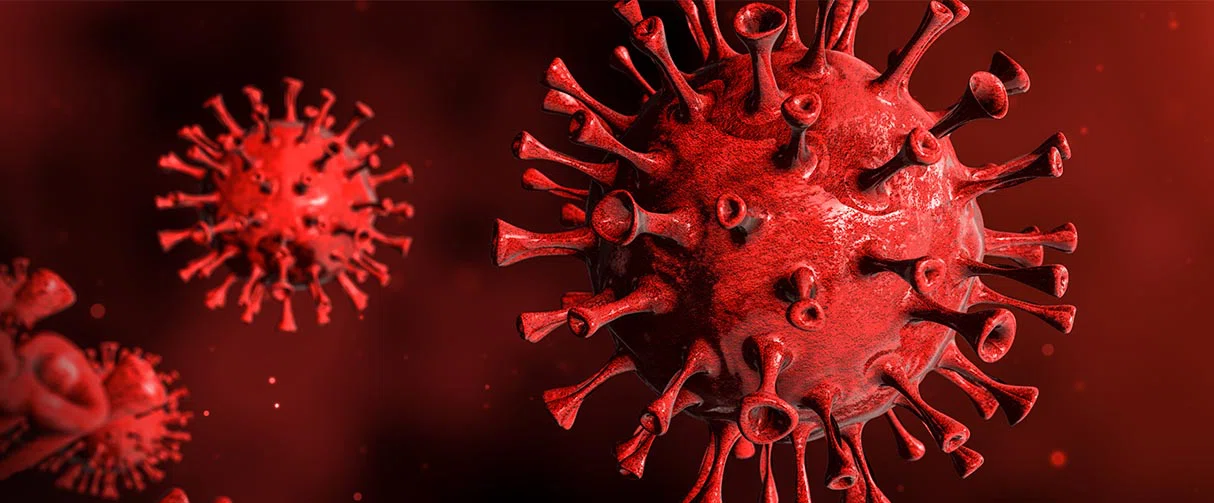


Outcomes Research
SARS-CoV-2 induced chronic oxidative stress and endothelial cell inflammation may increase likelihood of cardiovascular diseases and respiratory failure

Although the endothelium contains only a single layer of endothelial cells, it plays critical roles in regulating blood fluidity, vascular tone, platelet aggregation, inflammation and angiogenesis. Endothelial dysfunction leads to disease states where endothelial homeostasis is affected, causing chronic inflammation, diabetes, lung injury, thrombosis, vasospasm, atherosclerotic plaque formation and rupture, and other cardiovascular complications.
The coronavirus (COVID-19) disease, which has been declared a pandemic by the World Health Organization (WHO), has caused millions of deaths globally. According to a January 2022 WHO report, there have been more than 5.5 million deaths globally and more than 318 million confirmed cases by the severe acute respiratory syndrome coronavirus 2 (SARS-CoV-2). Endothelial cells play critical roles in SARS-CoV-2 infection. Although COVID-19 symptoms range from none (asymptomatic) to death, severe cases lead to pathologies including acute respiratory distress syndrome (ARDS), lung injury, thrombosis and cardiovascular disease, which are consequences of mitochondrial oxidative stress in endothelial cells and inflammation. Further, patients exhibit cardiovascular complications even after recovering from COVID-19.
Researchers are still working to better understand the role of mitochondrial dysfunction in endothelial cells as well as the mechanisms underlying the long-term disease processes associated with SARS-CoV-2 infection. Mitochondrial dysfunction plays significant roles in COVID-19 pathologies and endothelial cells infected with SARS-CoV-2 show apoptosis, inflammation, activation and dysfunction, which are thought to result from the inflammatory cytokine storm. Reactive oxygen species released by mitochondria in endothelial cells can trigger inflammatory signaling pathways, subsequently promoting endothelial activation and dysfunction and are capable of physically damaging cellular DNA, proteins and lipids.
In a review published in Frontiers in Physiology in 2021, Nhat-Tu Le, PhD, associate professor of cardiovascular sciences at Houston Methodist introduced the hypothesis that SARS-CoV-2 triggers a positive feedback loop that promotes a chronic state of inflammation and endothelial activation by inducing mitochondrial dysfunction and oxidative stress. This review details how chronic oxidative stress and SARS-CoV-2 induced inflammation in endothelial cells may increase the likelihood of cardiovascular diseases and respiratory failure.

Nhat-Tu Le, PhD
Associate Professor of Cardiovascular Sciences at Houston Methodist
Under physiological conditions, endothelial cells maintain homeostasis and mediate the transfer of solutes and macromolecules between the blood and tissue. When threatened by infection or injury, endothelial cells trigger inflammatory responses by secreting inflammatory cytokines and engaging immune cells. Indeed, endothelial cells are important in inflammatory pathologies such as ARDS, thrombosis, and atherosclerosis.
In endothelial cells, excess mitochondrial reactive oxygen species trigger mitochondrial dysfunction, inflammation and senescence which may be activated by SARS-CoV2 infection of endothelial cells. The state of senescence, in turn, promotes inflammation and chronic endothelial dysfunction. At low levels, mitochondrial reactive oxygen species function in regulating homeostatic processes like endothelial cell autophagy, immunity, and inflammation via oxidative signaling pathways. Elevated levels of mitochondrial reactive oxygen species can cause severe oxidative damage to proteins, DNA and lipids which can, in turn, cause mitochondrial dysfunction and inflammation. Hence, it is essential that endothelial cells remove excess mitochondrial reactive oxygen species.

To prevent a future outbreak of pulmonary and cardiovascular mortalities among recovered COVID-19 patients, it is essential to investigate SARS-CoV-2’s potential role in chronic oxidative stress and inflammation in endothelial cells. Interesting observations of SARS-CoV-2’s interactions with endothelial cells will uncover previously unknown mechanisms of endothelial cells and their role in pathogenesis of inflammatory syndromes observed in other diseases. These understandings will be crucial to mitigate and treat several infectious diseases of the present and as we step into the uncharted post-COVID era.

Nhat-Tu Le, PhD
Associate Professor of Cardiovascular Sciences at Houston Methodist
Evidence in the literature points towards critical functions of endothelial cells and inflammation in COVID-19 pathologies. For instance, autopsies of deceased patients in the Mount Sinai hospital in New York revealed disease states of thrombosis, hyperinflammation, endothelial dysfunction and diffuse alveolar damage. Yet another study showed that endothelial cells infected with SARS-CoV-2 had elevated levels of the inflammatory marker, Von Willebrand factor.
The signaling pathways associated with COVID-19 pathologies can be targeted to develop novel therapeutics. Specifically, potential therapeutics can target the SARS-CoV-2 induced feedback loops in endothelial cells involving oxidative stress and inflammation. Acute and long-term effects of SARS-CoV-2 infection can be alleviated by selective targeting of endothelial cell senescence, anti-inflammatory therapies, as well as antioxidant therapies.
“To prevent a future outbreak of pulmonary and cardiovascular mortalities among recovered COVID-19 patients, it is essential to investigate SARS-CoV-2’s potential role in chronic oxidative stress and inflammation in endothelial cells. Interesting observations of SARS-CoV-2’s interactions with endothelial cells will uncover previously unknown mechanisms of endothelial cells and their role in pathogenesis of inflammatory syndromes observed in other diseases. These understandings will be crucial to mitigate and treat several infectious diseases of the present and as we step into the uncharted post-COVID era.”, said Le.
As the COVID-19 pandemic continues to affect the global population, there is a concomitant increase in the number of recovering and infected patients – across all age groups. This underscores the importance of investigating and understanding the long-term health effects of COVID-19, including long-term oxidative stress, inflammation, and long-term damage to endothelial cells. Longitudinal studies and clinical trials conducted in the future may shed more light on the efficacies of various therapeutic strategies that may diminish the long-term deleterious effects on endothelial cells.
Ryan Chang, Abrar Mamun, Abishai Dominic, Nhat-Tu Le. SARS-CoV-2 Mediated Endothelial Dysfunction: The Potential Role of Chronic Oxidative Stress. Front Physiol. 2021 Jan 15;11:605908. doi: 10.3389/fphys.2020.605908.
This work was partially supported by the National Institutes of Health grant HL-134740 and HL-149303 to Dr. Nhat-Tu Le.
Abanti Chattopadhyay, PhD, March 2022








